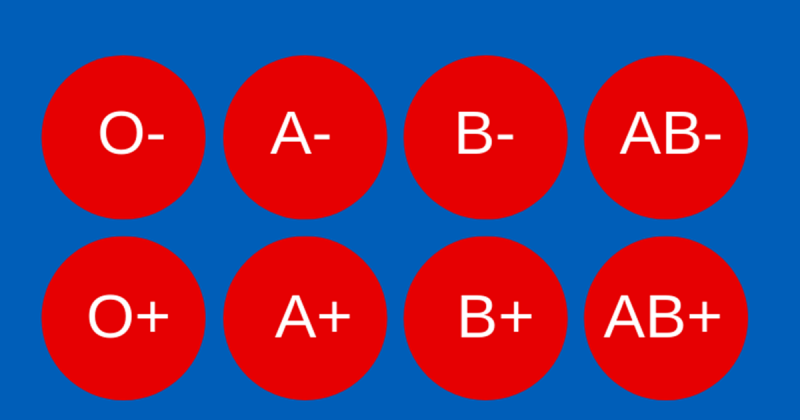Heard of the rarest blood group? No its not O-
By Osama Irfan Khan
Hyderabad: Yes it not O- but its 'Bombay Blood Group' which is the rarest of rare blood groups found in the world. It is found only among 0.0004% of the world population with higher occurrence in South Asia. This blood phenotype was first discovered in 1952 by Dr Y. M. Bhende in Mumbai (then Bombay).
How are the various Blood groups differentiated?
A, B, AB and O are the common blood groups while the Bombay blood group, also called hh blood group, is a very rare one. The cells which make up body tissues and organs are covered with markers called antigens-responsible for stimulating an immune response. Similarly, Every Red Blood Cell (RBC) has antigen covering.
• Blood type A: Red Blood Cell (RBC) have only antigen A. • Blood type B: Red Blood Cell (RBC) have antigen B only.
• Blood type AB: Red Blood Cell (RBC) have both A and B antigens. • Blood type O: Red Blood Cell (RBC) has neither A nor B antigens but has antigen H. • Blood type hh: Red Blood Cell (RBC) has no antigens at all.
Why is the Bombay blood group common in South Asia?
The people of India, Pakistan, Bangladesh and Sri Lanka share a common ancestry. Due to close community marriage and inbreeding, the occurrence of this blood group is higher in this region. It reaches to around one in every 10,000 in India.
How are the different blood groups identified?
A, B, AB and O blood groups are identified by the test called ABO typing. Where in the first step the blood sample is mixed with antibodies (proteins made by the body to fight foreign substance) in type A and B blood group and the sample is checked to see whether the blood cells are sticking together or not. If the blood cells are found to be sticking together, it means blood reacted to one of the antibodies. In the second step, called back typing, the presence of various antibodies in the blood plasma (the liquid component of the blood) is determined.
• blood group A will have antibodies to antigen B.
• blood group B will have antibodies to antigen A.
• blood group AB will not have antibodies to either antigen A or antigen B.
• blood group O will have antibodies to both antigen A and antigen B.
Blood group hh is identified by Antigen H blood test where the presence of antigen H is tested. People with hh blood group do not express the presence of antigen H.
What is ‘negative’ and ‘positive’ in blood groups?
The negative and positive in the blood groups refer to the presence of inherited protein, called Rhesus(Rh) factor, found on the red blood cell’s surface. If the blood lacks this protein it is called Rh-negative and if it has this protein it is called Rh-positive.
Who can donate blood to whom?
| Blood Group | Can donate to | Can receive from |
| O+ | O+, A+, B+, AB+ | O+, O- |
| A+ | A+, AB+ | A+, A-, O+, O- |
| B+ | B+, AB+ | B+, B-, O+, O- |
| AB+ | AB+ Only | All blood types |
| hh+ | O+, A+, B+, AB+ | hh+, hh- |
| O- | All blood types | O- only |
| A- | A-, A+, AB-, AB+ | A-, O- |
| B- | B-, B+, AB-, AB+ | B-, O- |
| AB- | AB-, AB+ | AB-, A-, B-, O- |
| hh- | All blood types | hh- only |